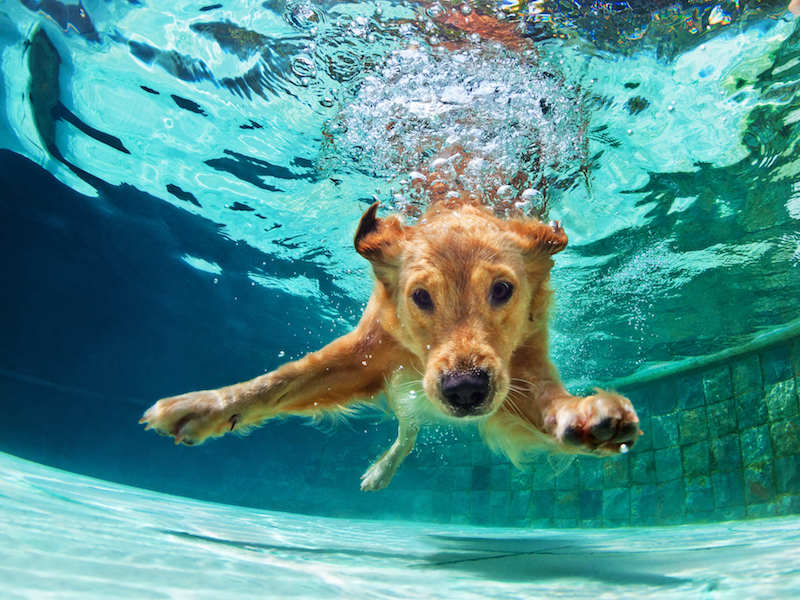
There are a lot of different things that can damage the delicate technology that makes a hearing aid work the way it does, but few have the impact of water. Hearing aids seem to self-destruct under severe moisture conditions. Taking that into consideration, humidity is a big problem.
Moisture that you can’t see has the highest chance of causing permanent damage. It’s time to learn more about why humidity is a damaging thing for hearing aids.
Let’s Talk About Humidity
Humidity is a word that gets talked about a lot, commonly during the summer months, but what does it mean? PBS describes humidity as water molecules in the air. The relative humidity refers to the ratio of water molecules in the air compared to how many the air can actually hold. When you can feel wetness in the air, that means the relative humidity is high.
Human beings are very sensitive to humidity because sweat is the most efficient way to cool the body. When humidity levels are too high our sweat won’t evaporate as fast. Moisture and electronics don’t mix well and that includes hearing aids.
Typically Electronics Have a Hard Time Dealing With Humid Weather
Too high or, too low, humidity can impact your hearing aids. When water vapor percentages are high condensation can accumulate on the delicate mechanisms that make electronic devices function, and low humidity can result in brittle core materials.
Internal electronics are the reason your hearing aids work. An advanced signal processing chip manages noise levels in a modern hearing aid. Because of this, you get amazing features like:
- Noise reduction
- Anti-feedback
- Targeted listening programs
- Digital sound streaming
High humidity causes moisture to accumulate in the hearing aids destroying that chip. Batteries get ruined and you get corrosion of elements inside of the case. You might as well drop your hearing aid in a tub full of water, and the effect is the same.
Dealing With Humidity
If you are looking at hearing aids, try to find products that are water-resistant. This feature will give you some protection from humidity and wet weather, but you still can’t swim with them in.
When it’s very humid try to reduce indoor water vapor by utilizing a dehumidifier. It’s not only your hearing aid that will benefit, there are health benefits, and other electronics in your house will also be protected. Dust mites, mildew, and mold thrive in moist environments so a dehumidifier will improve the quality of breathing as well. Although a house or room dehumidifier will help protect your hearing aids, it’s not enough. You will need to take other steps at the same time.
Consider buying a dehumidifier designed especially for hearing aids. There is one out there for every budget. Drying kits rely on silica gel crystals to protect the electronics. You put the device in the dehumidifier for a couple of hours to eliminate moisture. Drying your hearing aids as you sleep at night can be done using specially designed storage containers. In a pinch, you could use a bag of uncooked rice to remove moisture.
Don’t forget to leave the battery door open when you store your device. By pulling that door open before you put the hearing aid down, you expose the batteries and other elements to the air, allowing any condensation built up to evaporate naturally. Don’t just do this in the summer, do it all year round.
A cool dry place is the ideal for storage. On the table in the sun, in the glove compartment, or in a hot room are examples of where not to store your hearing aids.
Other Moisture Issues
Air vapor is not the only moisture that can damage hearing aids. Don’t forget to think about other types of wetness like:
- Make sure all lotion or sunscreen is fully absorbed before touching your hearing aids or putting them in your ears.
- Leave your hearing aids in a safe place before you go swimming.
- Wear a sweatband when exercising. If you are wearing your hearing aid then it’s a good idea in general. Later that sweat will cause problems.
- Check surfaces before you put your hearing aid down. A glass or coffee cup can leave moisture behind.
Your hearing aids are a valuable asset, so treat them that way. Keep in mind how moisture can damage your hearing aids and make sure to prevent water from getting in them. If your hearing aid already has water damage make an appointment for service with a hearing aid specialist.
